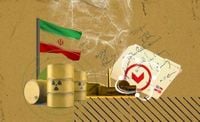Recent developments have reignited concerns over the potential activation of the "Trigger Mechanism," or Snapback, a critical enforcement tool embedded within the Joint Comprehensive Plan of Action (JCPOA) framework, that could lead to the reinstatement of international sanctions against Iran. This mechanism, a key part of United Nations Security Council Resolution 2231, has once again become a focal point in diplomatic and media discussions amid escalating regional tensions and dwindling cooperation between Iran and the International Atomic Energy Agency (IAEA).
The Trigger Mechanism allows any of the JCPOA signatories—namely the United States, Russia, China, France, the United Kingdom, and Germany—to initiate the reinstatement of suspended UN sanctions if they allege Iran has breached its nuclear commitments. What makes this mechanism particularly formidable is its non-vetoable nature: once a member refers a violation to the Security Council, if no consensus is reached within 30 days, all previous UN sanctions automatically snap back into effect, regardless of opposition from other members.
According to reports from 7sobh, the possibility of Western powers activating this mechanism is casting a long shadow over Iran’s diplomatic landscape. Analysts caution that without renewed and strengthened diplomatic efforts, the situation may spiral into a full-blown crisis. The mechanism’s activation could trigger a sweeping return of sanctions, including arms embargoes, missile restrictions, financial and banking sanctions, and a freeze on Iranian assets held abroad.
The economic repercussions for Iran would be severe. The rial could face further devaluation, inflation could surge, and oil exports—already under pressure—would face crippling restrictions due to sanctions on shipping and insurance. This would exacerbate economic instability and intensify hardships for ordinary Iranians and businesses alike.
Abbas Araghchi, the former Deputy Foreign Minister and a senior figure in Iran’s nuclear negotiation team, has underscored the urgency of the situation. He stated that the legal framework underpinning the JCPOA is set to expire in October 2025 (Mehr 1404 in the Persian calendar), marking a critical deadline. Without fresh negotiations and agreements, this expiry could effectively dismantle the JCPOA’s protections, paving the way for the Snapback mechanism to be triggered. Araghchi warned, "If the current trend continues and no agreement is reached, Autumn 1404 could be a turning point for the return of sanctions via the Snapback mechanism."
Despite these tensions, official Iranian sources have been cautious regarding the imminent activation of the Trigger Mechanism. Ghareeb Abadi, Deputy Legal and International Affairs official at Iran’s Ministry of Foreign Affairs, addressed recent rumors in a special news interview, stating that no official notification has yet been received about the mechanism’s activation. He noted that the veracity of a recent report from Germany would be clarified by July 15, 2025.
Abadi also remarked on the audacity required to activate Snapback, emphasizing that Iran would respond firmly should such a move be made. This stance reflects a broader skepticism toward media reports, particularly those originating from Al Arabiya, which have been scrutinized for citing unverified Iranian sources. Mashregh News, a prominent Iranian outlet, highlighted that no credible European or American sources have confirmed the activation claims. The false news from Al Arabiya notably caused the Iranian rial to depreciate sharply, pushing the dollar exchange rate up by two channels on July 14, 2025.
The consequences of activating the Trigger Mechanism extend beyond economic sanctions. It would mark a formal and severe return of UN sanctions, compelling the entire international community—not just the United States—to impose restrictions on Iran. This includes China and Russia, who would be legally barred from openly trading with Iran. The ripple effects would touch every sector: oil exports would be effectively frozen, global banks would shun transactions involving Iran, and even essential imports like medicine and food would become more challenging and costly.
Moreover, flights, scientific collaborations, foreign investments, and large-scale projects would all face suspension. Iran would find itself legally categorized alongside nations like North Korea and Venezuela as untrustworthy actors posing threats to global peace. This official branding would erase any remaining diplomatic neutral ground, solidifying a global consensus against Tehran.
Perhaps most alarmingly, the activation increases the likelihood of Iran’s case being referred to Chapter VII of the UN Charter. This designation would elevate the issue from sanctions to a formal declaration of Iran as a threat to international peace and security. Under Chapter VII, the UN Security Council could authorize coercive measures, including military action, with international backing. This shift would internationalize any military actions against Iran, moving beyond the current dynamics primarily involving the US and Israel.
Under such circumstances, any future military strikes against Iran would not only escape international condemnation but would also strip the Iranian government of its political defenses on the global stage. Iran would enter a period marked by comprehensive sanctions, isolation, and a lack of international support—an unprecedented level of diplomatic and economic pressure.
In this complex geopolitical environment, the timing is critical. The JCPOA’s legal protections are set to expire in late 2025, and the window for diplomatic engagement is rapidly closing. The international community faces a delicate balancing act: whether to pursue renewed negotiations to prevent the activation of the Trigger Mechanism or to brace for the extensive consequences of its enforcement.
For Iran, the stakes could not be higher. The potential reimposition of sanctions and international isolation threatens not only its economy but also its standing in the global order. As Ghareeb Abadi put it, activating Snapback "requires considerable audacity," and Iran is prepared to respond accordingly. But the path forward remains fraught with uncertainty, hinging on whether diplomatic channels can be revived before the clock runs out.
Amid swirling rumors and geopolitical maneuvering, one thing is clear: the coming months will be pivotal in shaping Iran’s future on the world stage, with the Trigger Mechanism looming as a decisive factor in the balance between confrontation and diplomacy.




